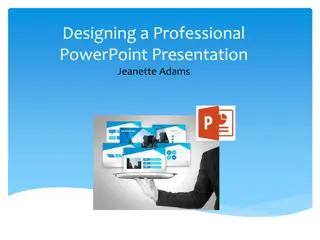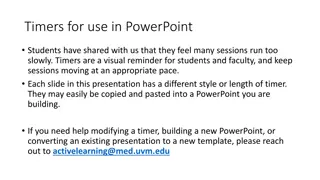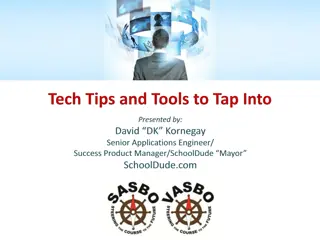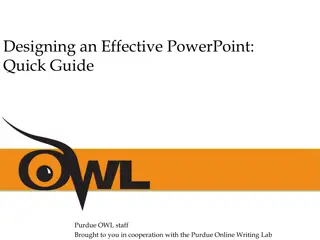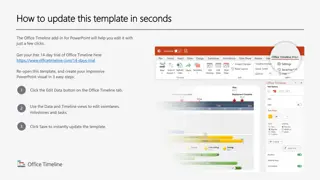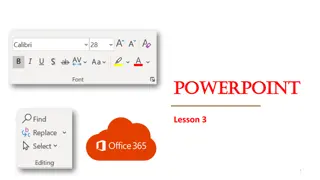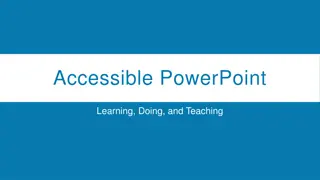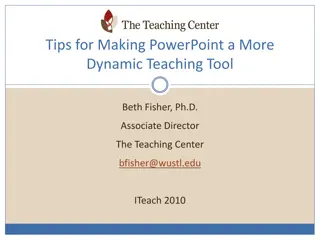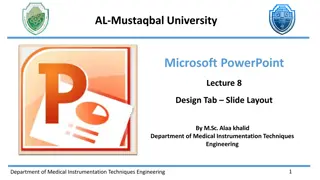
Designated Safeguarding Lead Annual Conference Updates
Stay updated on national and local safeguarding updates at the Education Designated Safeguarding Lead Annual Conference. Learn about key topics like whistleblowing, peer abuse, and online safety. Understand safeguarding requirements and know how to respond effectively to safeguarding concerns.
Download Presentation

Please find below an Image/Link to download the presentation.
The content on the website is provided AS IS for your information and personal use only. It may not be sold, licensed, or shared on other websites without obtaining consent from the author. If you encounter any issues during the download, it is possible that the publisher has removed the file from their server.
You are allowed to download the files provided on this website for personal or commercial use, subject to the condition that they are used lawfully. All files are the property of their respective owners.
The content on the website is provided AS IS for your information and personal use only. It may not be sold, licensed, or shared on other websites without obtaining consent from the author.
E N D
Presentation Transcript
EDUCATION DESIGNATED SAFEGUARDING LEAD ANNUAL CONFERENCE WELCOME AND INTRODUCTION TO CONFERENCE 17THMARCH 2017, 27THMARCH 2017 AND 28TH APRIL 2017
Education Designated Safeguarding Lead Conference Know about national and local updates and relevant learning; and understand the requirements of KCSIE(2016) Be able to update staff in school on education safeguarding issues and relevant learning annually Ensure you are suitably skilled and confident to use appropriate tools effectively.
Updates to Keeping Children Safe in Education in 2016 Whistleblowing Referrals Thresholds Peer on peer abuse Leadership Vulnerability of SEND children Role of DSL Online safety/mobile technology/sexting Visiting speaker protocol Early Help
Solihull LSCB Thresholds Threshold 1: No additional needs as needs met within universal services Threshold 2: Additional needs met by a single agency response Threshold 3: Complex Needs met through co-ordinated multi-agency plan Threshold 4: Statutory intervention or specialist intervention http://www.solihulllscb.co.uk/media/upload/fck/file/Solihull%20LSCB%20Thresholds%20g uidance%20September%202016.pdf
Ignore Dismiss Investigate Ask leading questions Examine a child Take photographs of injuries Attempt to resolve in isolation Receive Reassure Respond Report Record Remember Review
We do not take photographs of injuries We do not investigate We do not ask/tell pupils to remove clothing We do not strip search Regardless of child s personal circumstance, if we have a safeguarding concern about a child we follow our school child protection procedures We do not force a child to do something that they do not want to do
If you are unsure about what to do seek advice From the multi-agency safeguarding hub (MASH) Engage helpdesk From the legal team if it is a legal matter From your SEIS school adviser/SEIS office
DSL Recording Consider quality, detail, completeness, recording decisions. Could I pick up the record/file and read it cover to cover, and completely understand the issues, current position, next steps and any outstanding actions? Would you be confident reading them out and being questioned on them in court? If the worst happened, what would a serious case review say about your records and your actions?
Increased emphasis on peer on peer abuse All staff should be aware that safeguarding issues can manifest themselves via peer on peer abuse, including: Bullying (and cyber bullying) Gender based violence/sexual assaults Sexting
Child protection policy should include procedures to minimise the risk of peer on peer abuse and sets out how allegations of peer on peer abuse will be investigated and dealt with Staff should be clear on school policy and procedure Policy should be clear as to how victims of peer on peer abuse will be supported
The Role of the DSL in education Appropriate senior member of staff from school or college leadership team Any deputies should be trained to the same standard as the DSL In addition to formal training, knowledge and skills should be refreshed at regular intervals as required, but at least annually
All staff . Must be able to identify signs of abuse and neglect Must be updated on the following:
All staff must be updated on the following: Child Sexual Exploitation Preventing Radicalisation and Extremism Child missing from education Honour based violence (including Female Genital Mutilation and Forced Marriage) Online safety and sexting Child on child abuse/peer on peer abuse
Child on Child Abuse/Peer on Peer Abuse Workshop A Natasha Chamberlain Lecture Room
Child Sexual Exploitation Workshop B Bev Petch Conference 3 In Solihull in 2016, education providers noted 154 pupils were at risk of or experiencing child sexual exploitation (Unity 94, Mosaic 9, Evolve 24, Rural 4, Synergy 3, Post 16 4, Independent Schools 16)
Domestic Abuse (in the context of the toxic trio and neglect) Workshop C Claire McNeil Conference 2 In Solihull in 2016, 625 pupils were identified as in households where the toxic trio was prevalent Unity 399, Mosaic 87, Evolve 30, Rural 13, Synergy 29, Post 16 58, Independent 9
Neglect 524 pupils experiencing neglect. 341 Unity, 72 Mosaic, Evolve 70, Rural 9, Synergy 23, Post 16 7, Independent 2.
Availability of the DSL During term-time the DSL (and/or deputy) should always be available during school hours for staff in school to discuss any safeguarding concerns Out of hours/out of term activities schools arrange adequate and appropriate cover arrangements
Online Safety and Sexting It is essential that children are guarded from potentially harmful and inappropriate online material whole school approach GBs and proprietors should do all they reasonably can to limit children s exposure to harmful and inappropriate online material, with appropriate filters and monitoring systems in place Clear policy on use of mobile technology
Prevent Referrals preventing radicalisation and extremism local pathway Understanding Radicalisation and Extremism Practioner Toolkit Visiting Speaker Protocol (risk assessment and form)
Visiting Speaker/Events Protocol Ensure visiting speakers are suitable and appropriately supervised: Agree purpose for inviting a visiting speaker and guidelines on content Where possible submit details of talk in advance Speaker should be treated like any other visitor and appropriately supervised at all times
LSCB Priorities Child Sexual Exploitation Early Help Toxic Trio and neglect Learning from serious case reviews
Themes from Serious Case Review http://www.solihulllscb.co.uk/publications Parental Drug and Alcohol abuse Parental mental health (depression) Domestic abuse CiN /TAF meeting process and procedures Escalation processes including Step down processes Early help provision- Focus on mother Voice of the child missing
Other Local Priorities Operation Recognise The Choking Game Alternative Provision Safeguarding Governance MASH Police Panels and partnership working
The Choking Game Input from the School Nursing Service The Choking Game Pathway (Natasha Chamberlain)
Updates: Agencies permanently on the MASH Social Services Education Health Police Housing
Updates cont Online referral form can now be saved, and printed. Direct access to the education rep to follow through cases or ask advice. Education voice within the decision making process. Feedback on referrals Outcome decided within 3 to 24 hours. Email acknowledging referral The LSCB have just completed a MASH audit and there will be actions identified for each agency ..
Areas for development Quality of referrals. Timing of referrals. Parental consent. Recording facts. Not investigating cases or asking leading questions. If feedback is not received, chase the outcome with the MASH education rep. ALWAYS PHONE FOR ADVICE IF IN DOUBT ABOUT WHETHER TO REFER.
Police Engagement Police Community Support Officer and their role Police Panels Gangs and knife crime pathway Substance misuse pathway Local policing structure
Feedback continued Some schools with very high numbers of DA need to be better supported Good understanding of FGM and the statutory duty to report Neglect learning continues many education providers awaiting LSCB training
Feedback Continued CSE knowledge and how to act continues to improve, some inconsistency in use of the screening tool to support referrals Understanding of new model safeguarding policy guidance and the model child protection policy not all schools ensuring they are up to date
Feedback continued . Inconsistency in teaching children and young people how to keep safe through the PSHE curriculum, and use of recommended materials provided in DSL handbook and the model policy guidance Clarity on LSCB training Dispute resolution procedures updated www.solihulllscb.co.uk/.../Dispute%20resolut ion%20Escalation%20P
Engage Service (providing targeted Early Help) In Solihull in 2016, 275 pupils were receiving target support from the Engage Service, 124 at threshold 2 and 151 at threshold 3. Unity 61(2), 106(3) Evolve 19(2), 15(3) Synergy 15(2) 26(3) Independent Schools 0(2) 1(3) Mosaic 25(2), 17(3) Rural 4(2), 3(3) Post 16 Nil
Impact of Engage Work/range of support 24 providers positive comments 28 providers no comment Post 16 and independent targeted for information sharing session 14 providers no engagement with service 5 providers yet to provide information 10 providers say work yet to impact 6 providers less positive
Designated Safeguarding Lead Toolkit Safeguarding website: www.solgrid.org.uk/safeguarding/ Model policy guidance (safeguarding, child protection, supervision, attendance, safer recruitment, managing allegations etc.) Designated Safeguarding Lead Handbook LSCB thresholds document LSCB procedures
PLENARY Do you now have an increased understanding of local and national safeguarding issues and KCSIE 2016? Do you feel confident to provide an annual update (at least) to all staff at your education provision? Do you feel equipped to use key safeguarding tools (namely DVRIM and CSE screening tools)?



